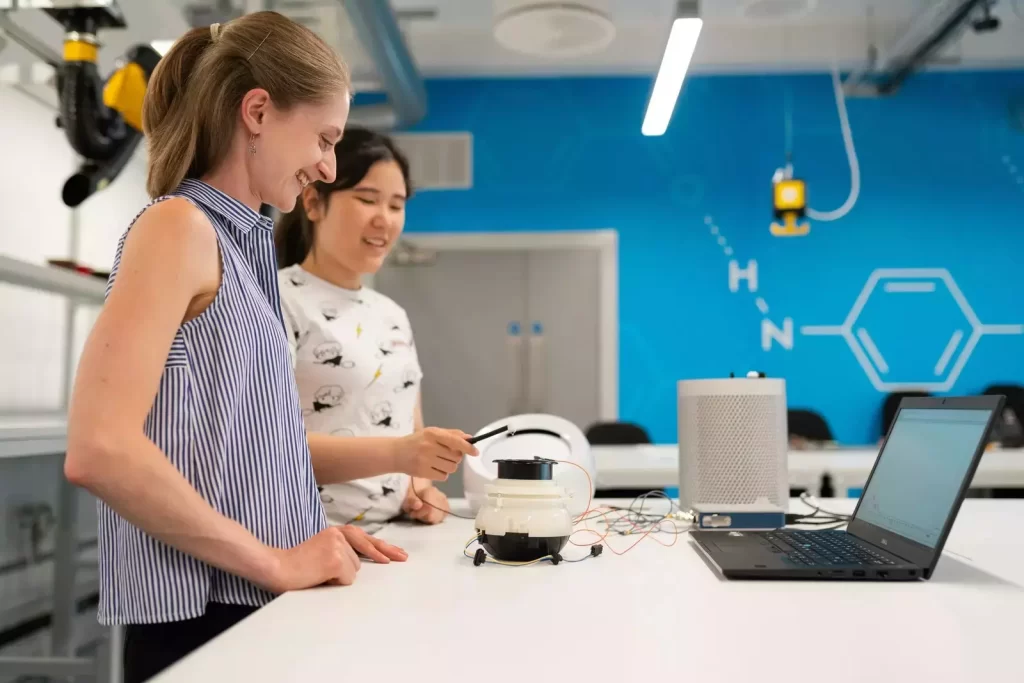Although the test PISA 2022 reveals differences in academic performance in mathematics, where boys outperform girls by 10 points, more and more institutions and companies are working to reduce the gender gap in education. STEM (science, technology, engineering and mathematics), promoting strategies that promote the equal opportunitys in these disciplines.
The magazine Ethic noted that according to the STEM Women Congress Annual Report 2023Currently, only 7% of Spanish women work in these areas, however, the advance towards the equity begins in education.
The report Equality in Figures 2023, by the Ministry of Education and Vocational Training, points out the need to strengthen women's interest in technological areas from school. In high school, the presence of women in scientific itineraries is 47.7%, but in vocational training and university it decreases drastically, with only 14% of women enrolled in computer science and 29.5% in engineering.
To change this reality, it is key to generate female referents in STEM, he believes. Maribel González VascoProfessor of Mathematics at the Universidad Carlos III de Madrid.
"Addressing these issues is complex and actions in a particular area have little impact if there is a lack of female referents associated with STEM areas," she explains.
One effective strategy is mentoring, where women scientists and technologists share their experience with young students.
Another fundamental aspect is the cultural transformation. The persistence of gender stereotypes, such as those identified by a study of Frontiers in Psychologywhere 70% of children between the ages of 4 and 9 associate intelligence with men, demonstrates the need to continue working from childhood on an education free of bias. Initiatives such as awareness campaigns and school programs focused on gender equality are helping to change this perception.
Business also plays a key role. More and more companies are implementing STEM inclusion strategies. Programs such as Amazon's Apprenticeships have achieved 40% of female participation since its launch in 2020, providing technical training and employment opportunities in areas such as maintenance, industrial automation and IT.
"(The objective is) to increase gender diversity in technical professions from the ground up, attract talent at an early stage and contribute to the professional development of all people who are passionate about these types of specialties," explains Marta Casasayas, head of the program.
Furthermore, reducing the wage gap is a pending challenge. According to the Labor Market Guide 2023In Spain, 48% of STEM women in Spain earn less than 30,000 euros per year, compared to 37% of men. To change this, pay equity policies and promotion of women to leadership positions in technology are being implemented.
The artificial intelligence is an area with great potential for female talent. Although currently only 22% of the professionals in this field are women, according to the World Economic ForumIn addition, the growing awareness of algorithmic biases is generating interest among more researchers.
"Some women may be more attracted to the challenge of 'humanizing' an artificial intelligence or analyzing the extent to which an intelligence can learn to behave in a compassionate or empathetic manner," notes González Vasco.
To achieve meaningful change, collaboration between educational institutions, businesses and governments is essential. Promoting scholarships, encouraging lifelong learning and creating inclusive work environments are key steps.
Diversity in STEM not only benefits women, but enhances innovation and technological development by incorporating different perspectives in problem solving. With well-targeted strategies, equity in these fields is an increasingly achievable goal.
Fuene: Ethic


